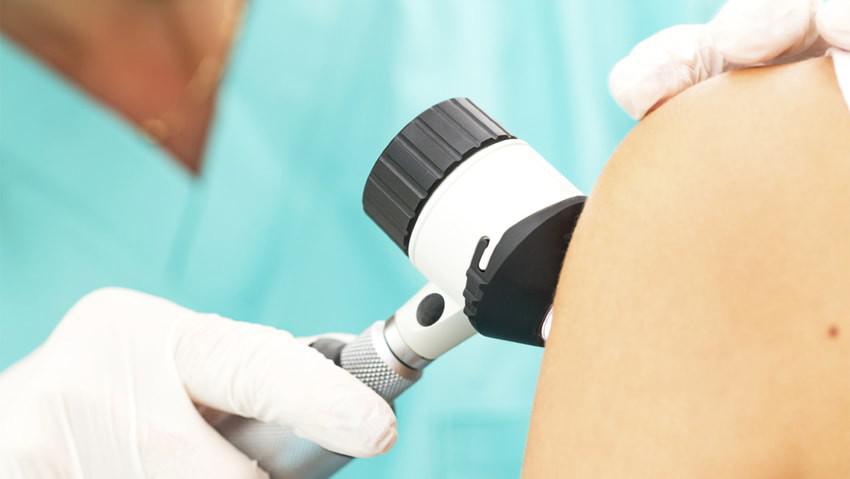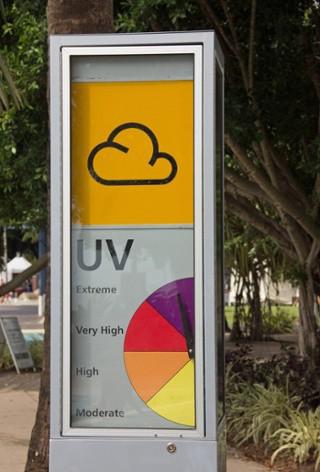Despite a growing awareness of health, and an abundance of information these days, incidents of skin cancer are on the increase. It’s the most common form of cancer here in Ireland but, while the very word ‘cancer’ inspires fear and worry, smart lifestyle choices and early detection can result in a better outcome.

As a Consultant Plastic Surgeon and skin cancer specialist at the Blackrock Clinic in Dublin, I have seen that skin cancer is the most common cancer in Ireland and the number of incidents is rising each year. However, patients should not be too overwhelmed or shocked when they’re told that the lesion on the skin is a skin cancer because the majority of skin cancers can be treated successfully with modern medicine and surgical treatment.
There are actually three main different conditions under the ‘skin cancer’ umbrella - non melanoma cancers, basal cell carcinoma and squamous cell carcinoma, and melanoma, which affects the deeper layers of the skin and is more serious. There are also a number of more rare cancers. According to the Irish Cancer Society there were 9,791 skin cancers and 984 melanoma cases in Ireland in 2013, with basal cell carcinoma being the most common.

Skin cancers are generally caused by exposure to the sun, either for prolonged periods or a short period of intense sun exposure and the burning that often comes with them. The ultraviolet light (UV) radiation in sunlight is what does the damage. These UV rays harm the DNA in skin cells so they don’t work correctly and this damage can occur years, even decades, before a cancer develops. In other words, a lifetime working outdoors, or teenage years not using adequate sun protection can have a serious impact later in life.
Paler skin types (known as Caucasian) are most at risk from this damage as they have low levels of the protective pigment melanin in their skin. The traditional Irish complexion; pale skin and light coloured hair and eyes, is particularly vulnerable. Added to this, the lack of significantly hot weather in Ireland means people tend not to protect their skin from the sun as they assume there is no danger. However, UV rays are present all year round, even on cloudy days, and cumulative damage can occur. Also, we tend to take more sun holidays now, so are more exposed to sunshine through the year.
There are a number of factors that can increase your risk of developing skin cancer, particularly later in life, as the damage is cumulative. If you had any severe incidents of sunburn as a child, spend a lot of time outdoors or have a large number of moles on your skin, your chances may be increased. Similarly, using sunbeds or tanning beds (artificial UV exposure) can be damaging and if you have had skin cancer before, you are at a greater risk of getting it again.

There is much you can do to minimise your and your family’s chances of developing skin cancer. Being sun smart is essential – use good quality, high factor SPF, and stay out of strong sunlight (this is especially key for children who have thinner skin than adults) and make sure to get any moles and unusual marks or lesions checked regularly.
Practical steps, and an awareness of your and your family’s skin will go a long way to helping you stay skin cancer free.
Remember, if in doubt, check it out! If your doctor is concerned about your skin, you should make an appointment to see a consultant dermatologist or consultant plastic surgeon with special interest in skin cancer.
They are the most qualified people to diagnose and manage a skin cancer, and it is important for a patient’s query or diagnosis of a melanoma to be addressed as quickly as possible, with no delays or waiting lists.
You can see the HSE’s guidelines on GP referrals for melanoma cases here.
If you are concerned about your skin or that of a loved one, arrange a consultation with me at my clinic, and download our free guide to sun protection:
Download Mr Chan's Guide to Proper Sunscreen Use
Despite a growing awareness of health, and an abundance of information these days, incidents of skin cancer are on the increase. It’s the most common form of cancer here in Ireland but, while the very word ‘cancer’ inspires fear and worry, smart lifestyle choices and early detection can result in a better outcome.

As a Consultant Plastic Surgeon and skin cancer specialist at the Blackrock Clinic in Dublin, I have seen that skin cancer is the most common cancer in Ireland and the number of incidents is rising each year. However, patients should not be too overwhelmed or shocked when they’re told that the lesion on the skin is a skin cancer because the majority of skin cancers can be treated successfully with modern medicine and surgical treatment.
There are actually three main different conditions under the ‘skin cancer’ umbrella - non melanoma cancers, basal cell carcinoma and squamous cell carcinoma, and melanoma, which affects the deeper layers of the skin and is more serious. There are also a number of more rare cancers. According to the Irish Cancer Society there were 9,791 skin cancers and 984 melanoma cases in Ireland in 2013, with basal cell carcinoma being the most common.

Skin cancers are generally caused by exposure to the sun, either for prolonged periods or a short period of intense sun exposure and the burning that often comes with them. The ultraviolet light (UV) radiation in sunlight is what does the damage. These UV rays harm the DNA in skin cells so they don’t work correctly and this damage can occur years, even decades, before a cancer develops. In other words, a lifetime working outdoors, or teenage years not using adequate sun protection can have a serious impact later in life.
Paler skin types (known as Caucasian) are most at risk from this damage as they have low levels of the protective pigment melanin in their skin. The traditional Irish complexion; pale skin and light coloured hair and eyes, is particularly vulnerable. Added to this, the lack of significantly hot weather in Ireland means people tend not to protect their skin from the sun as they assume there is no danger. However, UV rays are present all year round, even on cloudy days, and cumulative damage can occur. Also, we tend to take more sun holidays now, so are more exposed to sunshine through the year.
There are a number of factors that can increase your risk of developing skin cancer, particularly later in life, as the damage is cumulative. If you had any severe incidents of sunburn as a child, spend a lot of time outdoors or have a large number of moles on your skin, your chances may be increased. Similarly, using sunbeds or tanning beds (artificial UV exposure) can be damaging and if you have had skin cancer before, you are at a greater risk of getting it again.

There is much you can do to minimise your and your family’s chances of developing skin cancer. Being sun smart is essential – use good quality, high factor SPF, and stay out of strong sunlight (this is especially key for children who have thinner skin than adults) and make sure to get any moles and unusual marks or lesions checked regularly.
Practical steps, and an awareness of your and your family’s skin will go a long way to helping you stay skin cancer free.
Remember, if in doubt, check it out! If your doctor is concerned about your skin, you should make an appointment to see a consultant dermatologist or consultant plastic surgeon with special interest in skin cancer.
They are the most qualified people to diagnose and manage a skin cancer, and it is important for a patient’s query or diagnosis of a melanoma to be addressed as quickly as possible, with no delays or waiting lists.
You can see the HSE’s guidelines on GP referrals for melanoma cases here.
If you are concerned about your skin or that of a loved one, arrange a consultation with me at my clinic, and download our free guide to sun protection:
Download Mr Chan's Guide to Proper Sunscreen Use